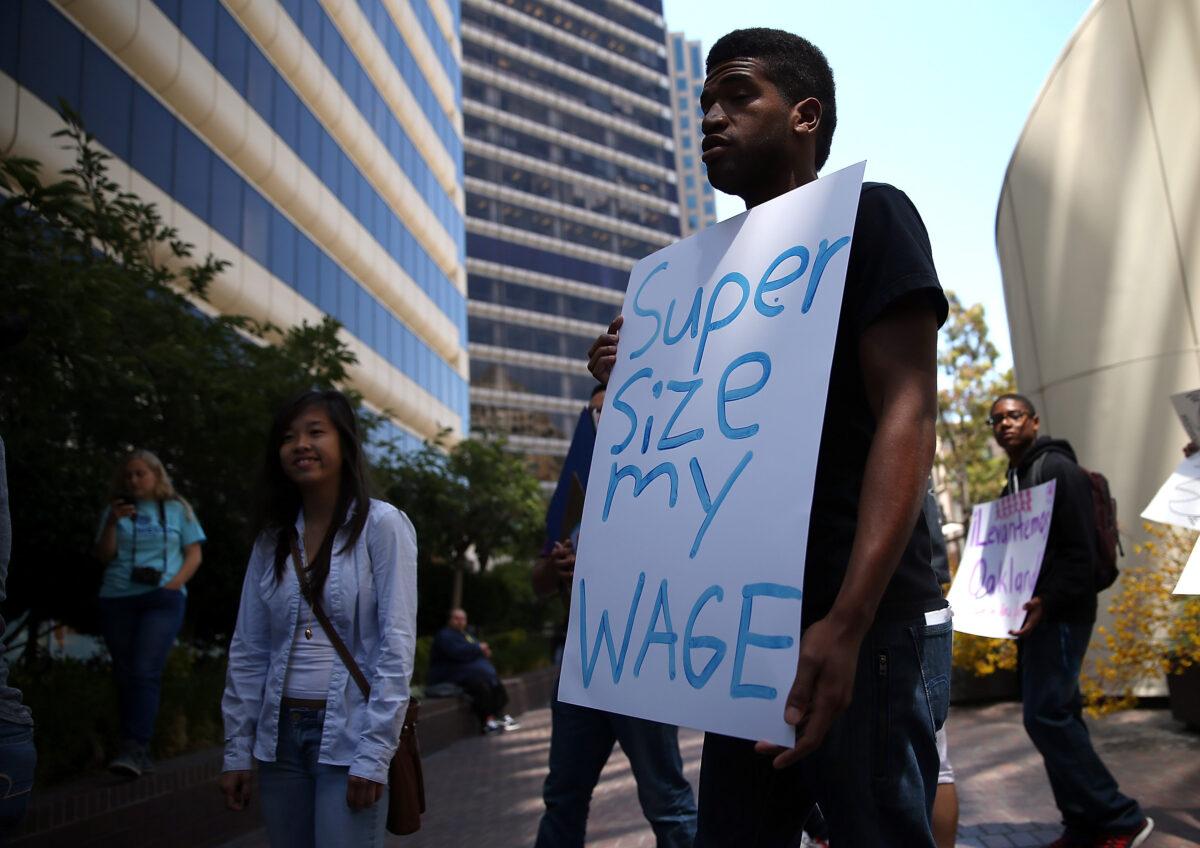Commentary
With a recession likely hitting California, now is the worst time for the Legislature to pass bills costly to state businesses. But that’s just what’s happening. Here are four of the worst bills currently on the 2023 Job Killer List of the California Chamber of Commerce.
Senate Bill 399 is by Sen. Aisha Wahab (D-Hayward). From the summary of the Assembly Judiciary Committee, “This bill would prohibit an employer from disciplining or threatening to discipline an employee who declines to attend an employer-sponsored meeting or participate in or receive communications from the employer regarding political or religious matters.”
This obviously is a violation of employers’ First Amendment rights to free speech. SB 399, for example, would ban an email sent out indicating a proposed new law would hurt the company’s business. In particular, it would ban any communication opposing unionization, because unions are political entities, especially nowadays when they have immense power over California politics. The bill would lead to a hornet’s swarm of litigation, raising costs for employers—and giving them another impetus, on top of the many already in existence, to leave the state.

Protestors stage a demonstration outside of the Oakland Chamber of Commerce in Oakland, Calif., on July 8, 2014. (Justin Sullivan/Getty Images)
Senate Bill 525 is by Sen. Marina Elena Durazo (D-Los Angeles). It would raise the minimum wage for health care workers to $21 beginning in June 2024 and $25 in June 2025. The general minimum wage in California currently is $15.50, although some cities have a higher one.
This obviously would just raise even higher the painful cost of health care. Even the very liberal California Nurses Association opposes it, because it would lead to cuts in nurses pay, which currently is well above $25. According to Indeed.com, the average for an R.N. is $53.71 per hour. In San Francisco, according to an R.N. I know, their pay is more than $150,000 a year just out of nursing school. Cutting nurses’ salaries would make the shortage of these caregivers, already acute in California, even worse.
Senate Bill 616 is by Sen. Lena Gonzalez (D-Long Beach). It expands from three to seven days the number of sick days employees accrue per year. In my experience working with several California employers, they usually are happy to accommodate employees’ needs when sick. Employees also can use vacation days, but that’s not an ideal solution.
The bill would make permanent a policy imposed during the COVID-19 pandemic, but which expired at the end of 2022. “COVID-19 presents a perfect example of why expanding paid sick leave is not simply good public policy, but a dire necessity,” Gonzalez said. She ignores how this obviously also would be another increase in costs to employers, who would have to cut costs to pay for it—sometimes by laying off the very workers who are supposed to benefit.
A bill like this would make more sense if the Legislature also passed companion bills cutting costs for businesses through regulatory reform or reducing taxes. But that never happens.

The California State Capitol building in Sacramento, Calif., on April 18, 2022. (John Fredricks/The Epoch Times)
Assembly Bill 259 is by Assemblyman Alex Lee (D-San Jose). In the bill’s words, it would “impose an annual tax at a rate of 1.5% of a resident of this state’s worldwide net worth in excess” of $1 billion; and “1% of a resident’s worldwide net worth in excess of” $50 million. There would be an easy way to avoid it: stop being a “resident” by moving out.
It’s especially silly this bill is sponsored by an assemblyman from San Jose, which is Silicon Valley—the heart of the global information revolution. If the bill became law, Interstate 80 would suffer traffic jams as the executives and high-IQ programmers headed out of the state in their Lamborghinis and Aston Martins.
Notice the bill taxes “worldwide net worth.” And AB 259 also reads, “This bill would apply the provisions of the False Claims Act to claims, records, or statements made in relation to the wealth tax imposed by the bill, as specified.” But how could a person with investments in foreign countries—there now are 200 of them—possibly keep track of fluctuating values in lands with dubious accounting means? Or where there might be wars or natural disasters? Or rapid currency devaluations?
Conclusion
Unlike the other bills, AB 259 is unlikely to become law. Gov. Gavin Newsom would veto it, even if only to show he’s a “moderate” for his presidential bid. And he will need the campaign contributions of the billionaires of Silicon Valley.
But that this bill was introduced at all—and has six Assembly co-sponsors and three in the Senate—shows a Legislature divorced from the economic reality in this state. As do the other bills detailed above.
Unfortunately, I don’t see things getting better any time soon. Most of the state’s legislators look upon businesses as milch cows to be forever tapped until there’s nothing left.














